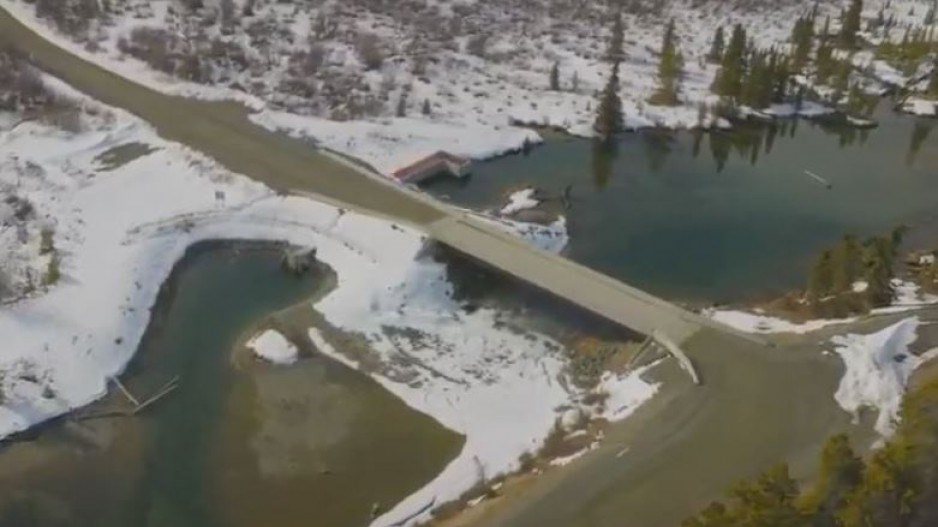For more than a decade, the Taku River Tlingit First Nation in Northern B.C. have been generating their own hydro power, which allowed the community of Atlin to phase out diesel generated power.
Now, thanks to funding from provincial, territorial and federal governments, the First Nation, through its Tlingit Homeland Energy Limited Partnership, plans a multi-million expansion that will allow communities in the Yukon to wean themselves off diesel power as well.
Since 2009, the Taku River Tlingit First Nation (TRTFN) in Atlin, B.C. have been generating hydro power with a 2.1 megawatt (MW) power station that harnesses the power of the water that flows between Surprise Lake and Atlin Lake.
The Tlingit Homeland Energy Limited Partnership now plans an expansion that will increase the power station’s generating capacity to 8.5 MW – enough electricity to power 3,400 to 7,650 homes – and includes a 92-kilometre, 69-kilovolt transmission line to power other Tlingit communities in the Yukon, where diesel generators are still used to generate electricity.
Tlingit Homeland Energy Limited Partnership will sell electricity to the Yukon Energy Corporation, which has been mandated by the Yukon Government to get 97% of its electricity from renewable sources by 2030.
In conjunction with the transmission line’s construction, a new fibre-optic data cable will also be built, which will bring high-speed internet to Atlin.
"Atlin has enjoyed clean and renewable energy since 2009 because of our hydroelectric project,” TRTFN spokesperson Charmaine Thom said in a news release.
“Over its lifespan, Atlin's hydro opportunity will prevent more than one million tonnes of greenhouse gases from being created to power the southern Yukon.”
The project’s capital cost is estimated at $253 million to $308 million, with $151 million in funding to come from the Yukon and federal governments. The B.C. government is contributing $20 million.
"Renewable-energy projects are helping remote communities reduce the use of diesel for electricity generation, which reduces air pollution, improves environmental outcomes and creates local jobs," said Bruce Ralston, minister of Energy, Mines and Low Carbon Innovation.
Yukon Premier Sandy Silver thanked the B.C. government for helping move the expansion project forward.
"Thank you to the Government of British Columbia for investing in this important project, which will further strengthen the connection between the Yukon and Atlin,” he said.
“This ambitious initiative will expand renewable energy capacity in the North in partnership with the Taku River Tlingit First Nation while reducing the Yukon's emissions and ensuring energy remains affordable for Yukoners.”




